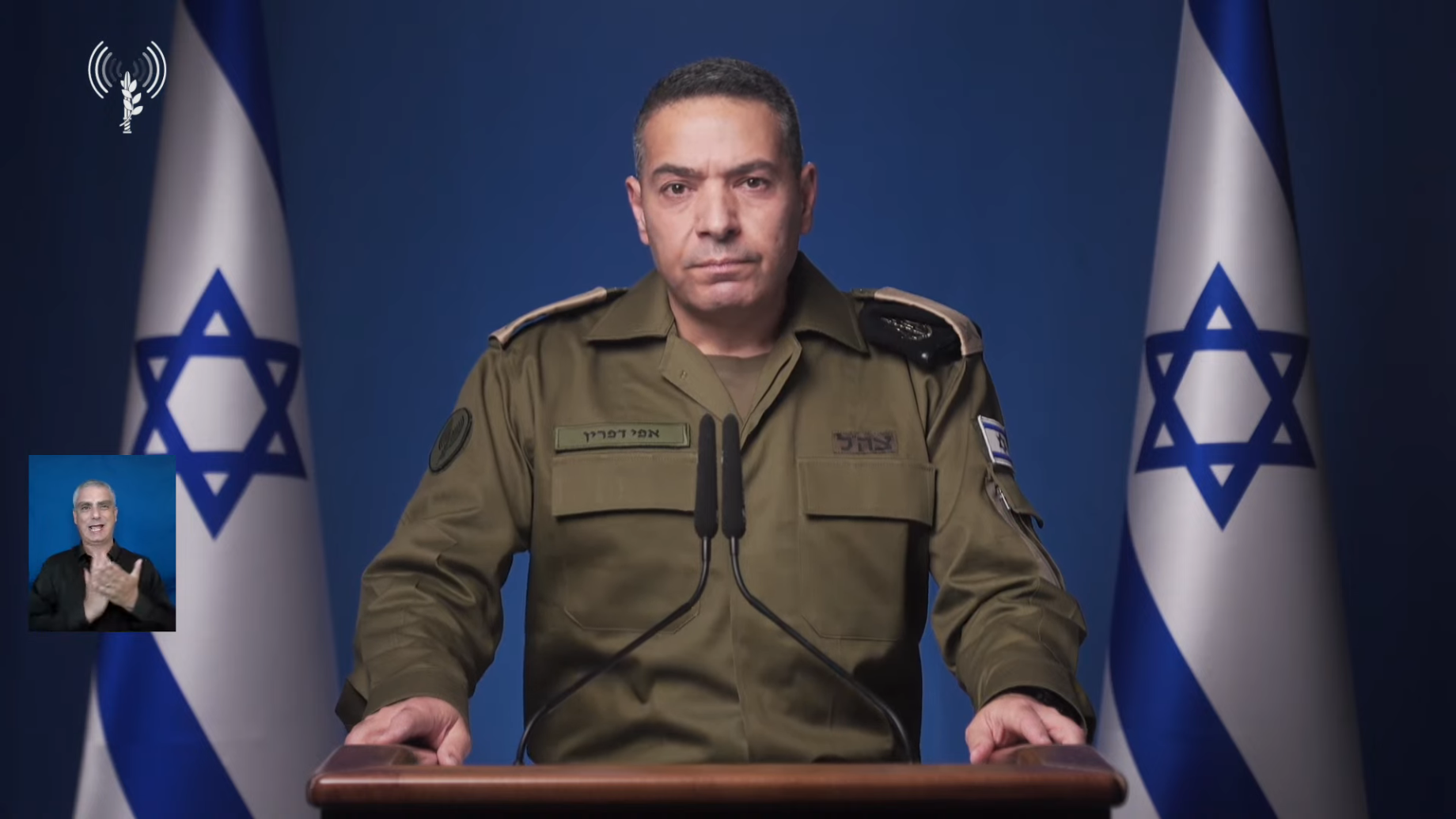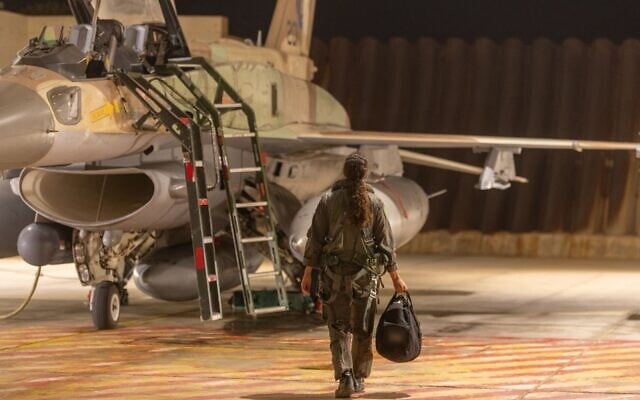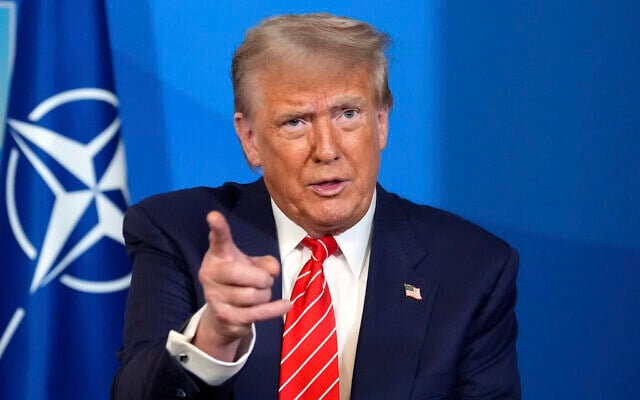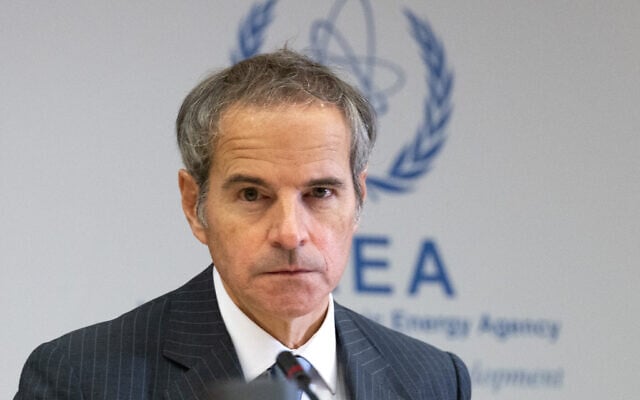



Israel’s military thinks the recent war with Iran has set the Islamic Republic’s nuclear program back by years, but the assessment is preliminary, and it is too early to know for sure, Israel Defense Forces spokesman Brig. Gen. Effi Defrin said Wednesday.
“We met all the objectives of the operation as defined for us, and even did so better than we had optimally expected,” Defrin said, but he cautioned: “I say this with humility, because it’s still too early to determine.”
“We are investigating and reviewing the results of our strikes on every part of this puzzle, as I’ve previously called it, the various components of the nuclear program and more,” he said.
“Now, I trust our intelligence analysts in the Intelligence Directorate and in the Air Force. I believe they have proven themselves to be accurate in recent weeks, and I can say here that the assessment is that we significantly damaged the nuclear program, and I can also say that we set it back by years, I repeat, years.”
Defrin’s comments echoed those of IDF Chief of Staff Lt. Gen. Eyal Zamir on Tuesday night that, “We have set Iran’s nuclear project back by years, and the same goes for its missile program.”
Prime Minister Benjamin Netanyahu, in an address to the Israeli public after the ceasefire came into effect on Tuesday, announced even more categorically that “we have thwarted Iran’s nuclear project.”
The comments from Israeli officials came as the White House rejected a preliminary intelligence report from the Pentagon assessing that American strikes on three of Iran’s key nuclear facilities — at Natanz, Fordo, and Isfahan — did not destroy the sites’ underground components and left Iran’s stockpile of enriched uranium largely intact.
According to that report — whose findings were leaked to the press on Tuesday — the Islamic Republic is less than six months away from obtaining a nuclear weapon should it decide to do so, up from only some three months prior to the US attack.
US President Donald Trump said Wednesday that the damage from the strikes, was severe, though he too acknowledged that the available intelligence on the matter was inconclusive.
“The intelligence was very inconclusive,” Trump told reporters before joining a NATO summit in The Hague. “The intelligence says we don’t know. It could’ve been very severe. That’s what the intelligence suggests.”
Later, during the same round of comments, Trump argued that Iran’s nuclear deal had been set back “basically decades, because I don’t think they’ll ever do it again.”
Trump was sitting alongside Secretary of State Marco Rubio and Secretary of Defense Pete Hegseth, who both also cast doubt on the reliability of the DIA assessment.
Rubio said the US was opening an investigation into the leak of the DIA report. He also suggested the report’s contents had been misrepresented in the media.
International Atomic Energy Agency Director General Rafael Grossi said Wednesday his top priority is getting his inspectors back to Iran’s nuclear facilities to assess the impact of the strikes and check the Islamic Republic’s stocks of enriched uranium.
“This is the number 1 priority,” Grossi told a news conference at an Austrian security cabinet meeting. He is seeking his inspectors’ return to Iranian sites, including the three plants where it was enriching uranium until Israel launched strikes on June 13.
Asked if Iran had informed him of the status of its stocks of enriched uranium, particularly its uranium enriched to up to 60% purity, close to weapons grade, he pointed to a letter he received from Iran on June 13, saying Iran would take “special measures” to protect its nuclear materials and equipment.
“They did not get into details as to what that meant but clearly that was the implicit meaning of that. We can imagine this material is there,” Grossi said, suggesting much of the uranium had survived the attacks.
Iran’s parliament, however, approved a bill Wednesday to suspend cooperation with the IAEA.
“The International Atomic Energy Agency, which refused to even marginally condemn the attack on Iran’s nuclear facilities, put its international credibility up for auction,” Iran’s parliament speaker Mohammad Bagher Ghalibaf said.
He announced that “the Atomic Energy Organisation of Iran will suspend its cooperation with the IAEA until the security of the nuclear facilities is guaranteed.”
The country’s Supreme National Security Council will still need to give final approval to the move, Iran’s state-affiliated Nournews outlet said.
Israel and Iran entered into open conflict on June 13 when Israel launched airstrikes targeting Iran’s top military leaders, nuclear scientists, uranium enrichment sites and ballistic missile program. Israel said the campaign was necessary to prevent the Islamic Republic from realizing its declared plan to destroy the Jewish state. On June 22, the US struck key Iranian nuclear facilities at Natanz, Fordo, and Isfahan.
Iran retaliated to Israel’s attacks by launching over 550 ballistic missiles and around 1,000 drones at Israel. Iran’s missile attacks killed 28 people and wounded thousands in Israel, according to health officials and hospitals. Missiles hit apartment buildings, a university, and a hospital, causing heavy damage. Iran also fired at a US base in Qatar after the American strikes.



